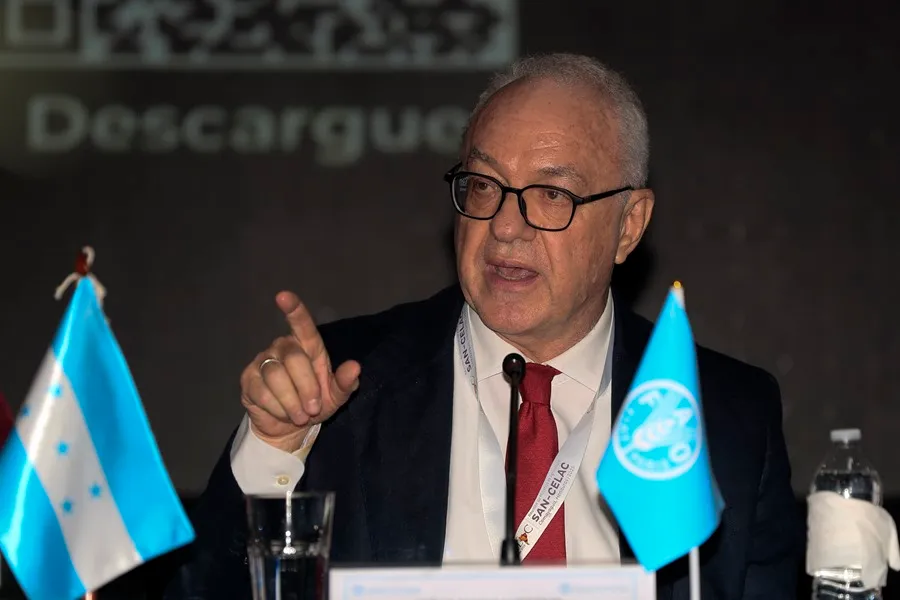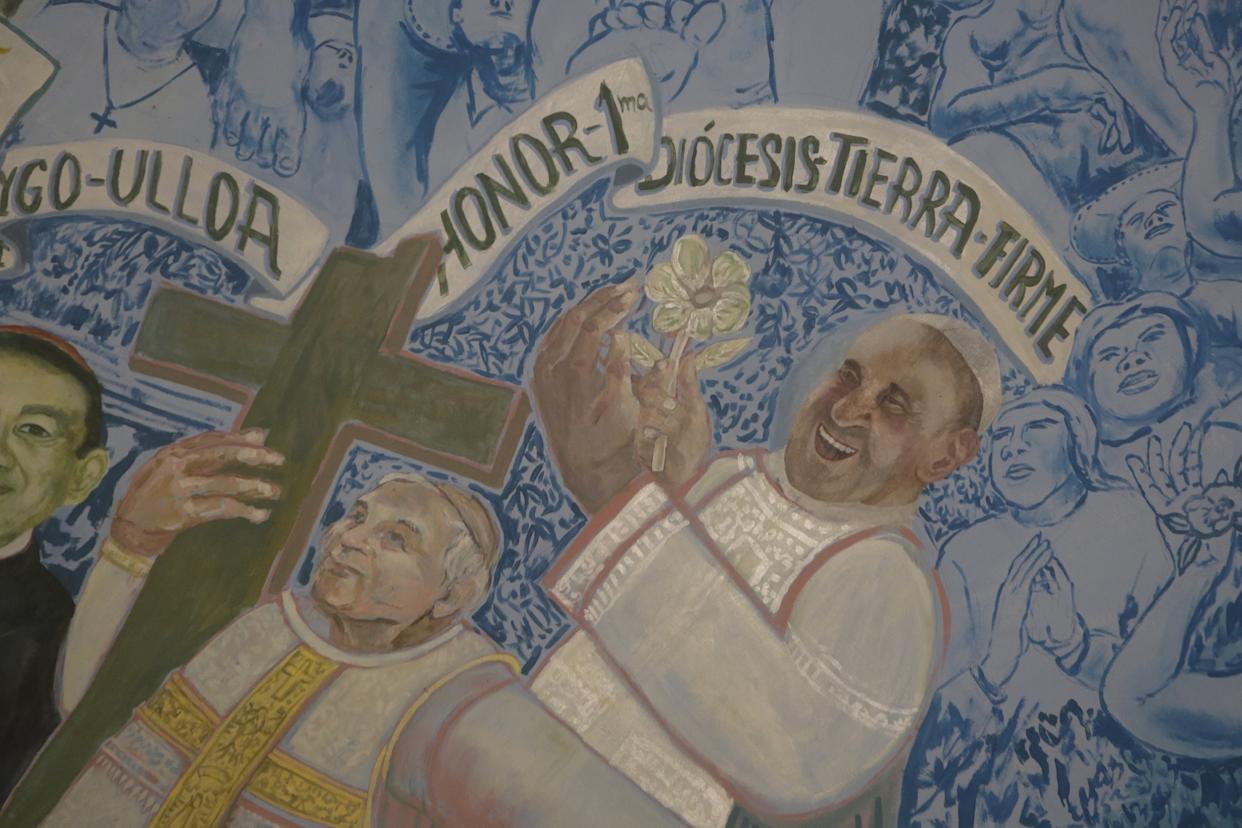International
FAO: Latin America facing “very worrying” scenario due to high numbers of hunger and obesity

Latin America and the Caribbean face a “very worrying, but with positive elements” panorama, given the 41 million people who suffer from hunger and a third of the population dealing with obesity problems, said this Monday in Honduras the deputy director general and regional representative of the FAO for Latin America and the Caribbean, Mario Lubetkin.
“It is worrying because we still have 41 million people who go hungry, that is dramatic if we think that in Latin America there are people who do not eat,” Lubetkin stressed to EFE after participating in Honduras in the inauguration of a meeting of Ministers of Agriculture of the Community of Latin American and Caribbean States (Celac).
However, Lubetkin stressed that in the last two years, hunger has decreased, which has allowed 4.5 million people to emerge from food poverty; which “forces” countries to strengthen their public policies to further reduce these figures.
Latin America and the Caribbean also face “bad food”, a problem that affects 140 million people, said the representative, who highlighted that the region has the capacity to produce food for 1.3 billion people.
Lubetkin said that following a healthy diet carries a daily cost of “$3.96” per person in Latin America and the Caribbean, after highlighting that the region has made progress in reducing hunger but records an increase in overweight.
“Almost a third of the region’s population is currently in the obesity scenario,” a problem that also affects “8% of children over 5 years of age,” he added.
In this sense, Lubetkin urged the region to look for “solutions” to eradicate both hunger and overweight and climate change, and warned that Latin America is beginning to fragment into three different realities, something that cannot be allowed.
“Not the whole region is in the same scenario and that is an alarm signal because today Latin America begins to divide into three Latin Americas, in other regions of the world there are subregions with different realities and we did not have that,” he explained.
Neither South America nor Central America can “allow there to be another subregion, to go backwards because it will affect us all,” the official insisted, after calling on the nations to “act together.”
Likewise, Lubetkin demanded greater investments to face climate change, strengthen the region’s agri-food systems and reduce food waste.
Faced with the seriousness of climate change, he said that it is necessary to implement “insurance” for producers that guarantees them the possibility of future production, even in adverse situations, he emphasized.
Finally, the FAO representative asked to create “new conditions” to improve food security in the region and assured that the value of food lost between harvest and sale exceeds “a quarter of all food production”.
International
DHS Secretary Kristi Noem’s Purse Stolen in D.C. Restaurant Heist

The purse of Kristi Noem, Secretary of the Department of Homeland Security, was stolen on Sunday night at a restaurant in Washington, D.C., Fox News Digital confirmed through several agency sources.
The handbag, taken by a white male wearing a mask, reportedly contained $3,000 in cash along with personal documents, including her passport, keys, driver’s license, and DHS badge, according to an agency spokesperson.
“Her entire family was in town, including her children and grandchildren. She was celebrating her retirement by treating them to dinner, activities, and Easter gifts,” the spokesperson added.
Crime continues to be a significant issue in the U.S. capital, particularly theft. However, violent crime reached its lowest level in 30 years last year, according to the Office of the Attorney General at the time.
International
Pope Francis: The Quiet Architect Behind the U.S.-Cuba Thaw

When then-U.S. President Barack Obama and Cuban President Raúl Castro announced the reestablishment of diplomatic relations in December 2014—after decades of hostility—there was a third figure present in both speeches: Pope Francis.
This thaw in U.S.-Cuba relations—later reversed by Donald Trump—was the result of behind-the-scenes negotiations personally encouraged by Pope Francis, who passed away on Monday at the age of 88, just over a year after becoming head of the Catholic Church.
Upon learning the news of the breakthrough, the pontiff humbly stated, “This was made possible thanks to the ambassadors and to diplomacy,” which he called “a noble, very noble job.”
In 2015, months after the announcement, Raúl Castro visited the Vatican and met with the pope. Over time, Castro developed a fondness for Francis that he never had for his predecessors, Benedict XVI and John Paul II. “If the Pope continues talking like this, sooner or later I’ll start praying again and return to the Catholic Church—and I’m not joking,” said the younger Castro, who, like his brother Fidel (1926–2016), had been educated by Jesuits—the same order to which Pope Francis belonged.
Pope Francis visited Cuba later that year. Just days before his arrival, the Cuban government announced the pardon of 3,522 common prisoners as an act of clemency.
While in Havana, the pope met with Fidel Castro, who gave him a first edition of the book Fidel and Religion by Brazilian friar and liberation theologian Frei Betto.
Criticism from the Opposition
Francis’s diplomatic approach also drew criticism from parts of the Cuban opposition. In a 2022 interview with Univision, the pope revealed he had “a human relationship” with Raúl Castro.
International
Dominican Republic Declares Three Days of Mourning for Pope Francis

Dominican Republic President Luis Abinader has declared three days of national mourning starting Tuesday following the death of Pope Francis, who passed away on Monday at the age of 88 in his residence at the Casa Santa Marta.
In an official decree, Abinader highlighted the pope’s legacy “as a global leader who promoted significant reforms within the Catholic Church and was known for his humility, openness to dialogue, and commitment to peace among nations.”
During the mourning period, the national flag will be flown at half-staff at military facilities and public buildings.
According to a statement from the Office of the Presidency, although Pope Francis never visited the Dominican Republic during his papacy, he maintained a close relationship with the country. He expressed solidarity and empathy during difficult times, including offering prayers for the victims of the recent tragedy at a Santo Domingo nightclub on April 8, which claimed 232 lives and left more than 180 injured.
-

 Central America4 days ago
Central America4 days agoNicaraguan Exiles to Mark 7th Anniversary of 2018 Protests with Global Commemorations
-

 International4 days ago
International4 days agoDominican ‘False Hero’ Arrested for Faking Role in Nightclub Collapse That Killed 231
-

 International3 days ago
International3 days agoACLU seeks emergency court order to stop venezuelan deportations under Wartime Law
-

 Central America3 days ago
Central America3 days agoUN complaint filed against Costa Rica over detention of migrant children
-

 International2 days ago
International2 days agoThousands rally nationwide against Trump’s threat to U.S. democracy
-

 Central America1 day ago
Central America1 day agoSenator Van Hollen Meets with Deported MS-13 Member in El Salvador; Trump and Bukele React
-

 International1 day ago
International1 day agoPope Francis Appears for Easter Blessing, Calls for Peace and Religious Freedom
-

 Central America6 hours ago
Central America6 hours agoCardinal Rodríguez to Attend Funeral of Pope Francis: “He Was Very Dear to Me”
-

 International6 hours ago
International6 hours agoDominican Republic Declares Three Days of Mourning for Pope Francis
-

 Central America6 hours ago
Central America6 hours agoNicaragua’s Ortega and Murillo Mourn Pope Francis, Acknowledge ‘Difficult’ Relationship
-

 International6 hours ago
International6 hours agoDHS Secretary Kristi Noem’s Purse Stolen in D.C. Restaurant Heist
-

 International6 hours ago
International6 hours agoPope Francis: The Quiet Architect Behind the U.S.-Cuba Thaw















